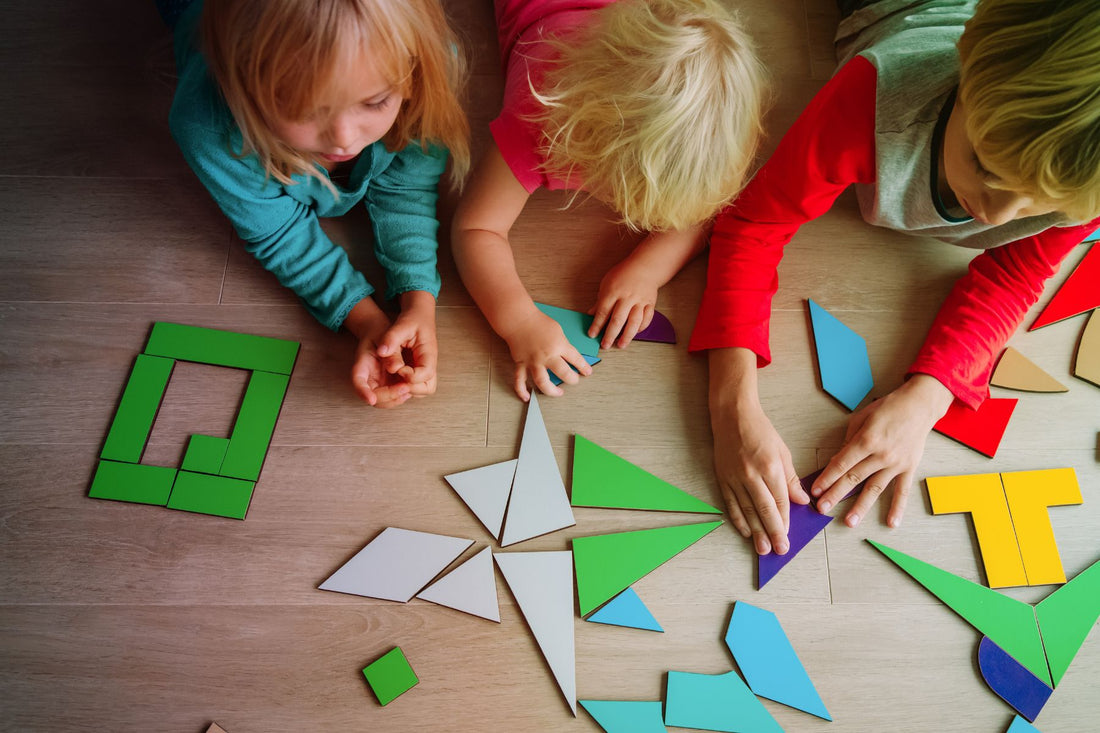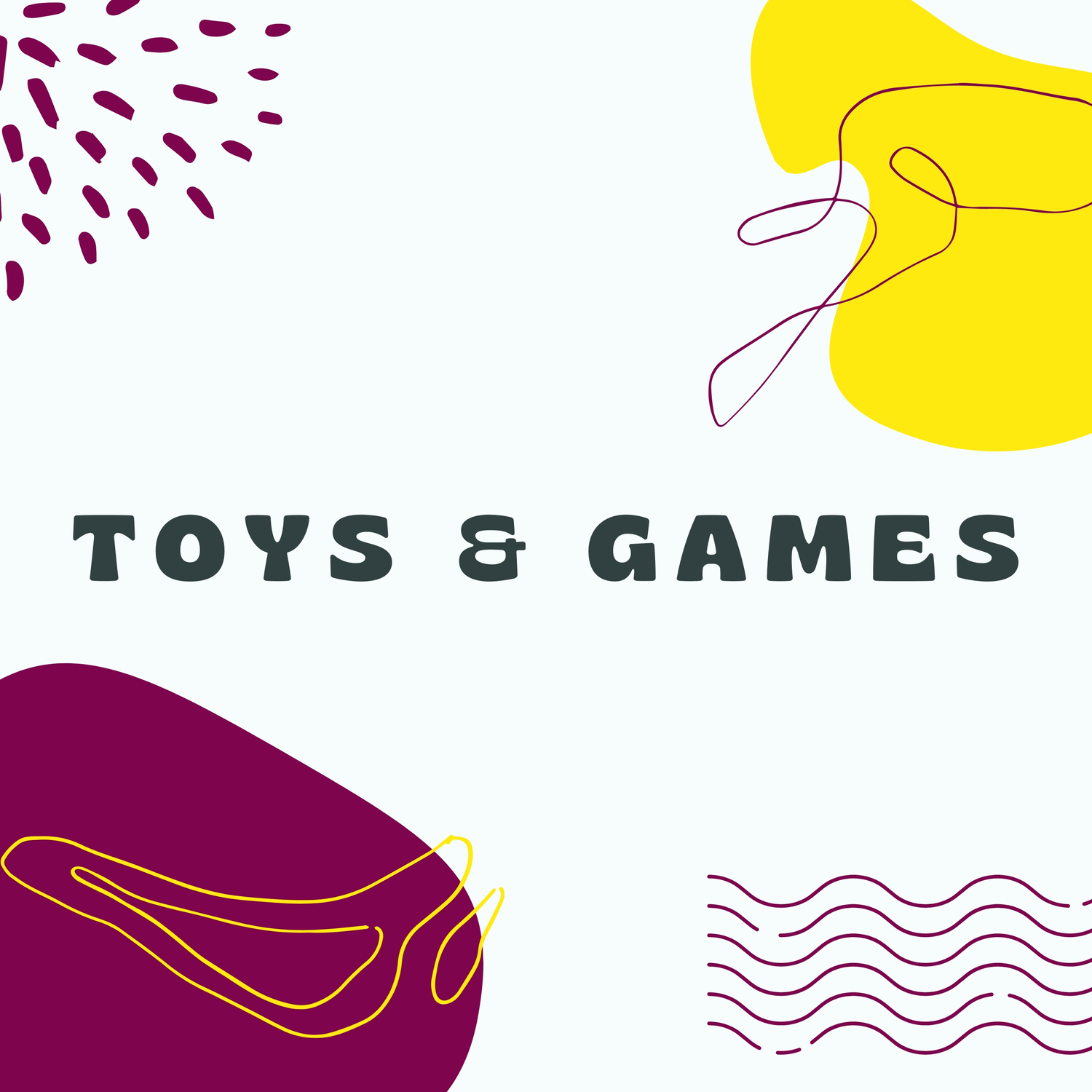
The Benefits of Educational Toys: Enhancing Children's Learning and Development
Nina PaulusShare
Introduction
Educational toys are an essential tool in promoting children's learning and development. These toys are designed to engage children in educational activities while providing a fun and interactive experience. One type of educational toy that has gained popularity is wooden learning toys. These wooden toys enhance fine motor skills and stimulate cognitive abilities, making them a valuable addition to a child's playtime. Early learning through educational toys helps children develop problem-solving skills and critical thinking abilities and prepares them for academic success. By introducing educational toys at an early age, parents and caregivers can lay a solid foundation for their child's overall development.
Making Learning an Exciting Adventure with Educational Toys
Introduction: The Joy of Playful Learning
In the eyes of a child, the world is a vast playground waiting to be explored. Every toy and every game is a new adventure, a new lesson. Educational toys bridge the gap between play and learning, ensuring that every play session is fun and a step forward in cognitive and skill development.
Interactive Learning: Beyond Traditional Methods
Traditional learning methods, while effective, often lack the interactive element that keeps children engaged. Educational toys, on the other hand, are designed to be interactive, hands-on, and engaging. Whether it's assembling a puzzle, experimenting with a science kit, or constructing with building blocks, these toys ensure that children are actively involved in learning. This active involvement ensures a deeper understanding and retention of concepts.

The Magic of Hands-On Exploration
One of the standout features of educational toys is their ability to offer hands-on experiences. Children are natural explorers. They learn best when they can touch, feel, and manipulate. Toys that allow them to manipulate parts, such as activity cubes or Montessori-inspired sets, enable them to explore different outcomes and understand cause and effect. This tactile exploration deepens their understanding and enhances fine motor skills and hand-eye coordination.
Cultivating a Lifelong Love for Learning
A positive attitude towards learning is a gift that keeps on giving. Children who find joy in learning are more likely to be curious, ask questions, and seek knowledge as they grow. With their perfect blend of fun and learning, educational toys ensure that children associate learning with joy. This association is crucial in fostering a lifelong love for learning. As they play with number toys, explore with discovery sets, or create with imaginative play toys, child learn that they're not just having fun but developing a mindset that views learning as an exciting adventure.
Parents: The Pillars of Playful Learning
While the quality of educational toys play a significant role, the influence of parents and caregivers is paramount. Parents can maximise the learning outcomes by choosing the right toys that align with the child's interests and developmental stage. Furthermore, parents can make learning even more meaningful by participating in play, asking open-ended questions, and introducing real-world applications of concepts.
Boosting Problem-Solving and Critical Thinking Abilities with Educational Toys

Introduction to Cognitive Development through Play
The world of educational toys offers more than just entertainment for children. It presents a realm where young minds are challenged and where they learn to question, analyse, and derive solutions. These toys, ranging from simple puzzles to intricate problem-solving games and educational toys online, are designed to sharpen a child's critical thinking and problem-solving abilities, preparing them for the challenges of the real world.
The Power of Logical Reasoning
One of the primary facets of educational toys is their ability to instil logical reasoning in children. Toys such as building blocks, number toys, and Montessori-inspired sets often have patterns or sequences. Children who play with these toys recognise these patterns, understand sequences, and predict outcomes. For instance, a child playing with an activity cube might realize that pressing a certain button leads to a specific sound. This recognition is the foundation of logical reasoning, a skill that becomes indispensable in mathematics and science.
Encouraging Creative Problem-Solving
While logical reasoning forms one part of the equation, creative problem-solving is another critical skill that educational toys promote. Imagine a child playing with a puzzle that doesn't fit the conventional way or a building set where they need to think out of the box to create a stable structure. Such scenarios push children to think beyond the obvious, encouraging them to develop innovative solutions. This boosts their confidence and prepares them for real-life situations where conventional solutions might not always be applicable.
The Role of Imagination in Critical Thinking
Toys that promote imaginative play, such as role-playing sets or storyboards, indirectly enhance critical thinking. Children who create stories or scenarios with kids' toys often encounter problems within their imaginative world. Maybe their toy dragon is stuck on a mountain, or their toy ship is stranded on an island. Creating solutions in these play scenarios hones their problem-solving skills in a fun and stress-free environment.
Fostering Creativity and Imagination
Educational toys are instrumental in fostering creativity and imagination in children. These toys provide a platform for children to explore, experiment, and create their worlds through play. Engaging with educational toys stimulates children's imaginations, allowing them to think outside the box and develop unique ideas.
One of the critical benefits of educational toys is that they stimulate children's imagination and creativity. Whether building blocks, art supplies, various animals, or pretend play sets, these toys encourage children to think creatively and envision new possibilities. They provide an open-ended environment where children can use their imagination to create stories, scenarios, and characters.
Educational toys also allow children to explore and create their worlds. Children can become anything they want through imaginative play - from a doctor saving lives to an astronaut exploring space. This type of play helps kids develop storytelling skills and the ability to think abstractly.
Playing with educational toys encourages innovative thinking. Children are encouraged to find new ways of using the toys or combining different elements. This thinking fosters problem-solving skills and helps children express themselves uniquely.
Parents and caregivers can nurture their child's creativity and imagination by providing access to various educational toys. These skills are essential for artistic pursuits and developing innovative solutions in various aspects of life. Educational toys offer a safe space for children to explore their ideas, experiment with different materials, and unleash their creative potential.
Supporting Social Interaction and Communication Skills through Educational Toys
Introduction to Social Learning with Toys
Educational toys are not just tools for cognitive development but are instrumental in shaping a child's social and communicative abilities. In today's world, where digital and online interactions often overshadow face-to-face communication, it's crucial to instil these skills from an early age. Toys that promote interaction, sharing, and imaginative play are excellent mediums for this purpose.
Promotion of Teamwork and Collaboration
One of the standout benefits of educational toys, especially building blocks, puzzles, and board games, is their ability to foster teamwork. When children come together to build a structure or solve a puzzle, they learn the essence of collaboration. They understand that sometimes, two heads are better than one. This early introduction to teamwork through toys like the "kiddie connect" or "fun factory" lays the foundation for future group activities and collaborations, whether in school projects or later in professional settings.
Enhancing Verbal Communication and Vocabulary
Toys involving role-playing, such as those encouraging imaginative play, are excellent tools for enhancing verbal communication. As children dive into the make-believe world, they converse with their peers, enacting various scenarios. This helps them articulate their thoughts and introduces them to new words and phrases, expanding their vocabulary. Toys that revolve around storytelling or those that come with instruction sets further push children to read out loud, ask questions, and engage in discussions.
Learning the Art of Conflict Resolution
It's natural for disagreements to arise during playtime. Perhaps two friends want the same toy or have a different view on how a game should proceed. Educational toys that require turn-taking, such as board games or activity cubes, teach children patience and the importance of waiting for one's turn. Moreover, when disagreements arise, children are nudged to find peaceful solutions, understanding the essence of compromise and negotiation. This skill is particularly crucial as they enter the real world, where conflict resolution becomes a part of daily life.
Spotlight on Popular Educational Toys
Educational toys come in various forms, each designed to target specific learning outcomes while ensuring children remain engaged and entertained. From wooden puzzles that enhance cognitive abilities to science kits that spark curiosity, there's an educational toy for every child's interest and developmental stage. Let's delve into some popular examples:
|
Name of Toy |
Description |
Learning Outcome |
|
100 Things for Little Children to Do on a Journey Activity Book/Cards with Magic Pen (3 to 7 years) |
An activity book with cards and a magic pen. | Boosts cognitive skills, hand-eye coordination, and keeps children engaged during travels. |
| An activity book designed for plane journeys. | Enhances creativity, problem-solving skills, and keeps children entertained during flights. | |
|
35 Pcs Vehicle Felt Story Board Set - A Transportation Interactive Game (3+ years) |
A felt story board set with vehicle pieces. | Boosts storytelling abilities, vehicle recognition, and interactive play. |
| A simulated steering wheel toy for toddlers. | Enhances sensory exploration and introduces basic vehicle concepts. | |
| Body Parts Recognition Card Game (2+ years) | A card game for recognising body parts. | Enhances body part recognition and memory skills. |
| Montessori Wooden Shapes Puzzle (3+ years) | A wooden puzzle featuring different geometrical shapes. | Boosts shape recognition, fine motor skills, and cognitive development. |
| Wooden Colour Matching Puzzle: Ocean Adventure (3+ years) | A wooden puzzle with an ocean theme for colour matching. | Boosts colour recognition, hand-eye coordination, and cognitive skills. |
Conclusion

In conclusion, educational toys offer numerous benefits for children's learning and development. They enhance problem-solving skills, foster creativity, support social interaction, and promote learning in a fun and engaging way. Children develop critical thinking abilities, improve fine motor skills, and cultivate their imagination by engaging with educational toys. These toys also provide opportunities for social interaction, communication, and essential life skills. Early learning through educational toys sets a strong foundation for a child's overall development and future success. So, whether it's wooden learning toys or interactive puzzles, incorporating educational toys into a child's playtime routine is an investment in their growth and lifelong love for learning.





1 comment
Sakuya.in is one of best online toy shop for kids.You can buy toys for kids online at https://sakuya.in